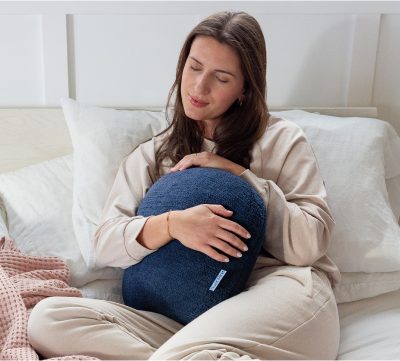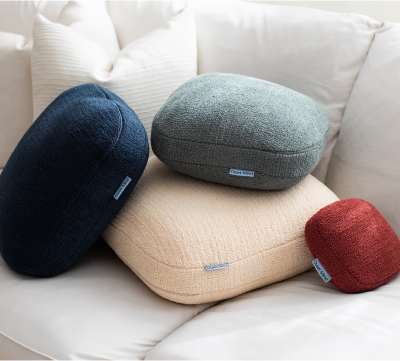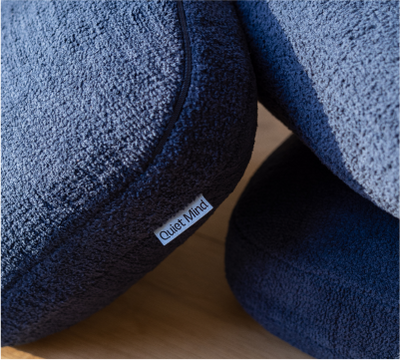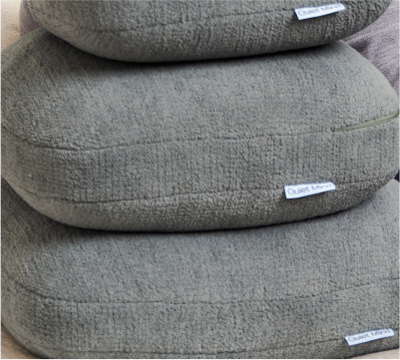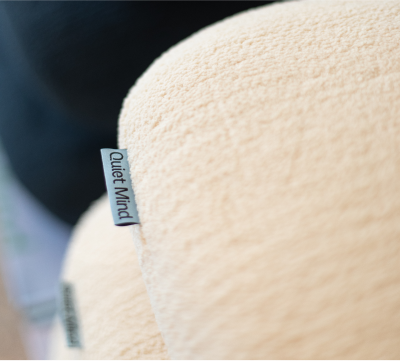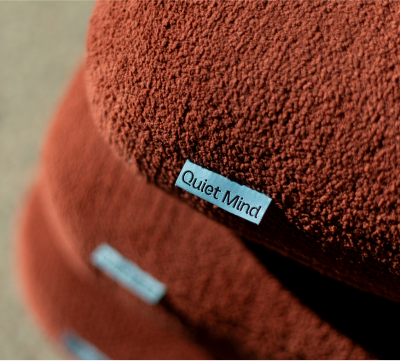You fall into bed, exhausted—yet you wake feeling like you barely slept at all. Your body aches for rest, but deep sleep remains just out of reach. If you’ve ever wondered why your nights aren’t restoring you, you’re not alone.
Millions struggle to get enough quality sleep, and much of it stems from not getting enough deep sleep. Despite spending 7–9 hours in bed per night, your body may not be reaching the crucial stages of the sleep cycle that allow true recovery.
What Is Deep Sleep—and Why Does It Matter?
Deep sleep, also known as Stage 3 NREM sleep or slow-wave sleep, is the most restorative stage of the sleep cycle. During this time, your brain waves slow dramatically, your muscles fully relax, and your body focuses on tissue repair, immune regulation, and hormone balance.
This phase is different from REM sleep, which supports dreaming and emotional processing. Deep sleep plays a vital role in physical repair and energy restoration. Without adequate deep sleep, many people experience lingering fatigue, poor concentration, or disrupted energy levels.
The recommended amount of sleep per night varies by age, but deep sleep typically makes up about 25% of total sleep time in healthy adults. That means if you're getting the sleep you need (say, 8 hours), you should ideally spend at least 60–110 minutes in deep sleep.
But for many, deep sleep is consistently missing.
Signs You’re Not Getting Enough Deep Sleep or REM Sleep
Even if you’re spending enough time asleep, poor sleep quality or disruptions in your sleep stages can mean you’re never reaching the deep sleep your body craves.
Here’s how your body might be telling you it’s missing deep sleep:
- You wake up feeling groggy or mentally foggy
- You need naps despite “getting enough sleep”
- You feel emotionally drained or easily irritated
- You experience physical fatigue or sore muscles
- You struggle with memory or focus throughout the day
These can be the symptoms of sleep deprivation—specifically, a lack of deep sleep.
Common Causes Sleep Disruption and Lack of Deep Sleep
1. Elevated Stress and Cortisol Levels Can Disrupt Deep Sleep
Chronic stress is one of the top disruptors of healthy sleep. According to research, high cortisol may prevent your body from entering slow-wave sleep, keeping you stuck in light sleep stages.
This blunted sleep architecture lowers your total time in deep sleep, even if your hours of sleep remain high. Breathwork, meditation, or journaling before bed can calm the nervous system and help you get the deeper sleep you need.
2. An Irregular Sleep Schedule Can Block REM Sleep and Deep Sleep
Your circadian rhythm thrives on regularity. Going to bed and waking up at inconsistent times disrupts this internal clock, making it harder to fall into the deeper stages of the sleep cycle.
People with irregular schedules or frequent jet lag often experience this issue. Following a consistent sleep schedule is one of the simplest ways to improve deep sleep quality.
3. Poor Sleep Hygiene
Sleep hygiene refers to the habits and environment that support better sleep. Factors like screen time before bed, excessive noise, or an uncomfortable mattress can seriously affect how well you sleep.
To support deeper rest:
- Dim lights 1–2 hours before bed
- Keep your room cool (ideally 63–66°F / 17–19°C)
- Remove electronics from the bedroom
- Use blackout curtains to reduce light pollution
- A peaceful sleep environment is essential to get deeper sleep naturally.
4. Caffeine, Alcohol, and Medications
Caffeine can stay in your system for up to 10 hours, delaying NREM (nonrapid eye movement) sleep and deep rest.
Similarly, alcohol may help you fall asleep initially but disrupts your sleep patterns, reducing time spent in Stage 3 NREM.
Some medications also interfere with deep sleep, especially those affecting neurotransmitters. If you suspect this, speak to a healthcare provider about alternatives or dosage adjustments.
5. Hidden Sleep Disorders and How They Disrupt Deep Sleep
Obstructive sleep apnea (OSA), restless legs syndrome, and insomnia can all interfere with your body’s ability to transition into deep sleep.
People with sleep apnea may wake up hundreds of times per night without realizing it, reducing total sleep time and affecting overall sleep quality.
If you:
- Wake up gasping or snoring
- Have pauses in breathing during sleep
- Feel exhausted despite a full night’s sleep
Consider undergoing a sleep study or using an at-home sleep apnea testing device to help diagnose the issue.
How Much Deep Sleep Do You Really Need for Full Recovery?
While individual needs vary, most adults need 1.5–2 hours of deep sleep per night, assuming they get a full eight hours overall. However, deep sleep decreases naturally with age and is more easily disrupted in people with poor lifestyle habits or underlying health conditions.
If you're wondering whether you're getting enough REM sleep, wearables and sleep tracking devices can provide clues. These aren't diagnostic, but they help highlight trends—like how much deep sleep you're getting versus other stages.
How to Get More Deep Sleep Naturally Each Night
Creating the right habits and environment can significantly improve how much deep sleep you get each night. These simple shifts can have a powerful impact:
1. Build a Bedtime Routine to Get More Deep Sleep and Reduce Sleep Problems
Your body needs time to shift gears. Build a calming ritual before bed:
- A warm shower to relax muscles
- Herbal tea or magnesium supplement
- Gentle stretching, yin yoga, or light reading
- You might also try aromatherapy as lavender has calming sleep benefits that support your body’s ability to relax into deeper rest.
2. Optimize Your Environment to Support REM Sleep and Deep Sleep
Your sleep environment should signal calm and safety. To invite healthy sleep:
- Keep your room dark and quiet
- Maintain a cool temperature (especially helpful for deep sleep)
- Choose natural, breathable bedding
- Avoid screens and loud noises in the final hour before bed
- Many also find that using a body pillow to ease anxiety helps create a calming, cocoon-like sleep space that encourages deep rest.
3. Sync With Light to Improve Your Stage of Sleep and Get Enough Deep Sleep
Your sleep-wake cycle is heavily influenced by light. Expose yourself to natural light during the day and reduce artificial light exposure at night to improve sleep patterns.
Blue light in the evening suppresses melatonin, delays NREM sleep, and disrupts your sleep architecture—especially if you're already struggling to get enough deep sleep.
4. Nutrition Tips to Help You Get More Deep Sleep Naturally
- Avoid stimulants like caffeine after midday
- Limit alcohol and processed sugar in the evening
- Eat magnesium-rich foods (almonds, dark chocolate, leafy greens)
- Include healthy carbs at dinner (quinoa, brown rice, sweet potato)
You can also follow this guide to better sleep habits for more routines that promote restorative sleep.
When to Seek Support
If lifestyle changes haven’t improved your amount of deep sleep, it may be time to seek help. People with sleep disorders often benefit from formal evaluations.
You may need a sleep lab assessment if:
- You consistently wake unrested despite getting 7–9 hours
- Your partner notices gasping, choking, or loud snoring
- You’ve tried good sleep hygiene but still struggle with fatigue
- You suspect a chronic sleep condition or mood-related sleep issues
Many treatments for sleep disorders are now available, from CBT for insomnia to devices that address obstructive sleep apnea.
Final Thoughts: Get the Deep Sleep You Deserve to Feel Whole Again
Deep sleep is not a luxury—it’s a biological need. And if you’re not getting enough of it, your body will tell you. Fatigue, mood swings, poor memory, and recurring illness are all signs that you may not be reaching the stage of the sleep cycle that allows true healing.
But the good news? There are many natural ways to get more deep sleep and improve your overall sleep hygiene. Something as simple as hugging a pillow while sleeping can activate feelings of safety and calm—supporting your nervous system as it prepares for rest.
You don’t have to push through every day in a fog. You deserve rest that heals—not just enough sleep, but enough quality sleep.
About QuietMind
At Quiet Mind, we believe in the power of simple, natural solutions to ease the mind and body. Our signature weighted pillows are designed to provide comforting pressure, helping to alleviate stress, anxiety, and restlessness.
Whether you're seeking a moment of calm during a hectic day or a more restful night's sleep, Quiet Mind offers tools to support your journey toward tranquility. Discover the soothing embrace of our weighted pillows and find your path to a quieter mind.
Frequently Asked Questions
Why is my body not going into a deep sleep?
Many factors can interfere with deep sleep, including stress, irregular sleep patterns, stimulants like caffeine, or underlying conditions such as sleep apnea.
How do I know if I’m not getting enough deep sleep?
If you wake feeling unrefreshed, struggle with focus, or feel fatigued during the day despite a full night’s sleep, you may be missing deep sleep.
Can stress or anxiety affect deep sleep?
Yes. Elevated cortisol levels from stress can prevent your body from fully relaxing into slow-wave sleep.
What natural supplements support deep sleep?
Magnesium and glycine have been shown to support muscle relaxation and sleep onset. Quiet Mind’s formulations combine these ingredients to support restorative rest.
When should I seek help for sleep issues?
If lifestyle changes haven’t improved your sleep—or if you suspect a disorder—consult a healthcare provider or sleep specialist.
